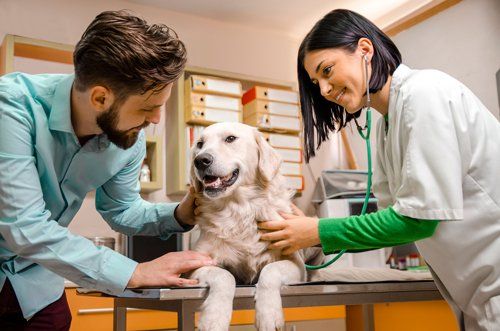3 Benefits of Routine Vet Visits for Your Feline Friend
Responsible cat care means more than providing food and shelter. As a concerned cat owner, you must recognize the importance of routine veterinary examinations. The benefits of regular vet checkups include detecting illness and disease early on and so much more.
If you need further convincing, here are benefits to taking your cat companion to the veterinarian on a regular basis.
1. Preventing Serious Health Issues Later on
Preventative care is essential if you want your feline friend to live a long and healthy life. During your routine visits, the vet may inoculate your pet to prevent disease. Vaccinations may protect your kitten or cat from contracting serious or fatal diseases, such as rabies, feline leukemia, and feline distemper.
As a major part of preventative care, a veterinarian may also examine your pet for fleas, ticks, and other external parasites. If necessary, a vet will prescribe treatment or recommend a course of action. You may also be advised on the best methods for preventing fleas and ticks from affecting your cat. Prevention is important, as pets are at risk for developing complications from ticks and fleas.
Another part of preventative care during wellness exams is checking your cat's weight. Because obesity may lead to health problems, your vet may recommend a special diet if your cat needs to lose weight.
You may also prevent health issues and complications by having your vet take routine blood tests. Blood tests will check for organ function and possible medical problems, such as diabetes. If caught early on, health issues may be treated to prevent serious complications later.
2. Providing Dental Care or Treatment
Cats need routine dental care to maintain good oral health. Your vet can check for problems during regular checkups. Your vet may detect signs of problems, such as gum disease, or tartar and plaque buildup. If gum disease is not detected and treated early on, your cat may develop an infection that needs special treatment.
In addition, your vet may educate you on the most effective way to help your cat maintain good oral health. You may be shown how to properly brush your cat's teeth and be advised on special dental treats, such as dental chews, to offer your cat that may help eliminate tartar. Your vet may also advise you of signs your cat has a problem with its teeth and gums.
During routine vet exams your vet may order x-rays of your pet's teeth. A dental cleaning on a regular basis may also be beneficial.
3. Identifying and Correcting Behavioral Problems
Has your once docile cat suddenly become aggressive? Has your feline friend stopped using the litter box in favor of the bathtub? Has your furniture become a victim of your cat's constant scratch and destroy missions? Behavioral problems may need the advice of an expert, namely your cat's veterinarian.
To get to the bottom of behavioral issues, your vet may ask some questions. Have you recently moved to a new home? Have you added a new addition, such as another cat or pet to your household? Did you change your cat's diet recently? Your vet may help you determine the cause of the problem and provide some sensible solutions for correcting it.
Even if your feline companion does not have outward signs of health problems or behavioral problems, routine vet exams are essential for your pet's well-being, Schedule an appointment today at Alta Vista Veterinary Clinicand ask us about future wellness checkups. Be proactive in your cat's routine care and enjoy a healthy relationship for a long time to come. Call us for any assistance you might need.









